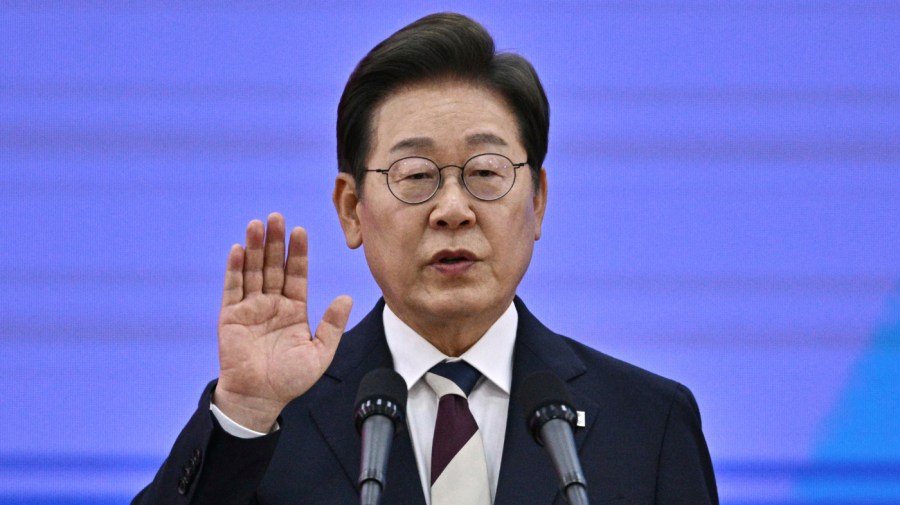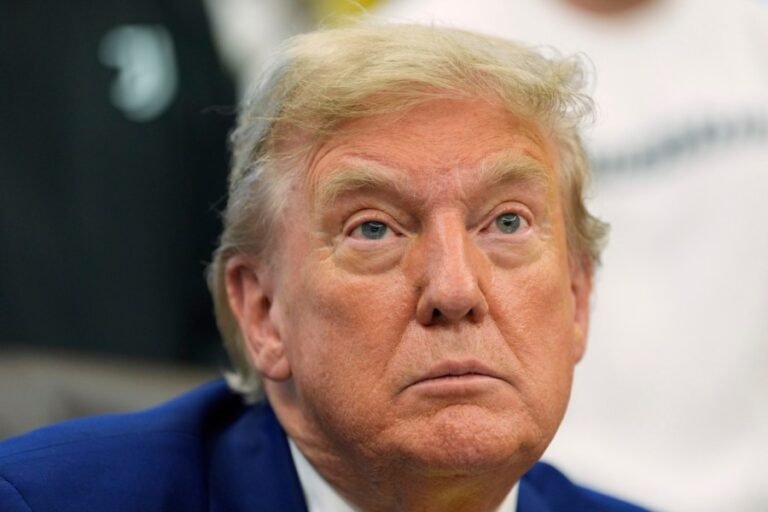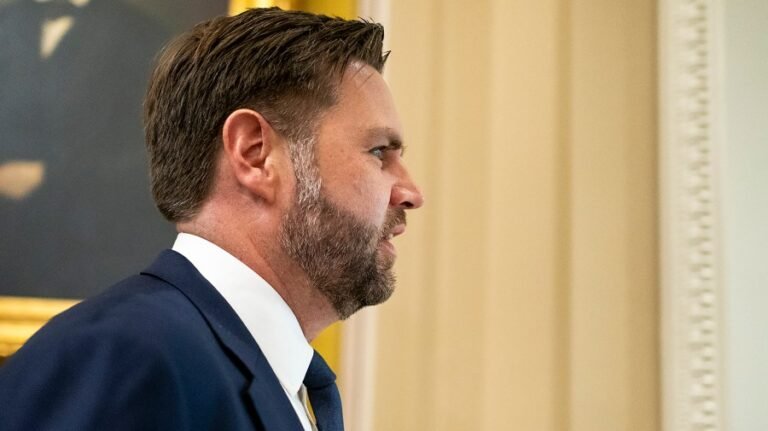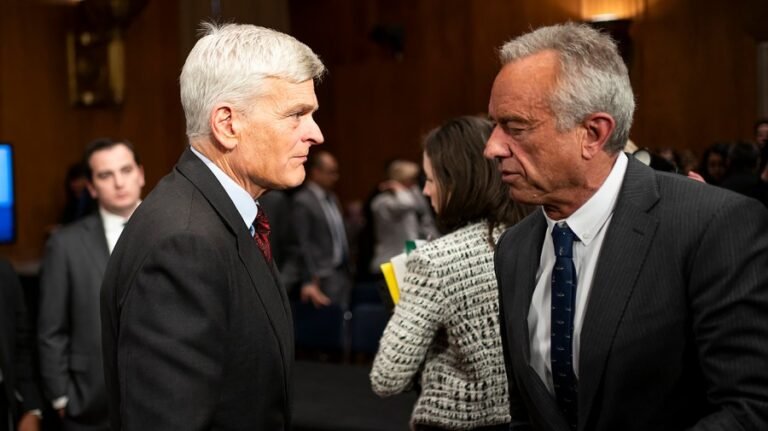
South Korea’s newly elected president, Lee Jae-myung, has an almost impossible agenda. He wants to be all things to all sides, domestically and internationally. Lee’s admirers portray his rise to power as a triumph of liberal democracy over an evil attempt to return South Korea to old-style dictatorship.
Lee’s background is so divisive, so mired in scandal, however, that it’s difficult to portray him in heroic proportions. The luster of his success at the polls is wearing thin with the realization that he faces charges in lower courts, including corruption stemming from the 2022 election campaign for president that he lost to the rightist Yoon Suk Yeol by an eyelash. Lee’s political rise marks him more as an opportunist than an ideologue.
As president, Lee controls a national assembly dominated by his own Minju or Democratic Party and is immune to prosecution. But his history will be difficult to overcome while he looks for revenge against his enemies. The assembly, at Lee’s behest, impeached Yoon and the constitutional court upheld the impeachment, forcing Yoon out of office and precipitating the “snap election” that elevated Lee to the presidency. Now Lee is exerting maximum pressure in court cases against the conservatives who tried to destroy him — notably against Yoon, for declaring martial law.
In his inaugural speech, Lee spoke of the need for unity and for bringing people together, but he us pressing a new special prosecutor to delve ever deeper into Yoon’s background while Yoon stands trial in a district court on multiple counts, the most important of which are insurrection and mutiny. The court has freed Yoon from pre-trial detention, but Lee and the radical activists at the nucleus of the Minju would like him back in prison for life.
Another 20 or so of Yoon’s once-trusted lieutenants, including a former defense minister and a police commander, are still being held on a raft of charges for their roles in the “coup against the state” — a favorite phrase for Yoon’s fling with martial law. These cases will drag on for years while Lee presses for reforms, including four-year presidential terms, giving him the right to run for a second term rather than the current single term that runs five years (unless the president gets impeached and ousted).
Lee has a strong motivation for wanting to extend his presidency beyond five years. He still faces his own charges of corruption, the most serious of which is making false statements during his unsuccessful 2022 campaign related to a real estate deal in which a developer got a huge contract in Seongnam while Lee was mayor. A key figure in the case was found dead in his office. His suicide was the first of several mysterious deaths reported during Lee’s tenure.
Then, while governor of Gyeonggi Province, he was indicted for transferring funds to North Korea in hopes of meeting leader Kim Jong Un — contrary to both the law and central government policy. Now Lee is talking about expanding the size of the supreme court from the present 14 justices to 30 or 40, all to be appointed by him and all but guaranteed to exonerate him of all pending charges.
Lee has not given up on North Korea. In his inaugural speech, it was the only foreign country worthy of a full mention when he pledged to “reopen communication,” which Kim shut down completely during Yoon’s presidency. Just to show he wasn’t “pro-North,” however, Lee did say “the Korea-U.S. alliance” along with South Korea’s armed forces would “deter nuclear threats and military provocations” — a gesture tossed out as a sop to Americans who doubt if he will approve the same level of joint military exercises as Yoon.
Leftists in both Korea and the U.S. may still yearn for Lee to go along with an “end-of-war” declaration replacing the armistice that ended the Korean War 72 years ago next month. Obviously North Korea would want only a “peace treaty” under which the U.S.-Korea alliance would collapse and U.S. forces would leave. Lee in his far-leftist days may have espoused this notion, but during his campaign he talked of the need to “strengthen the alliance” while also mending frayed ties with China. At his inaugural, he called for “coexistence, reconciliation and solidarity” — code for a deal with the North that alarms hard-liners but may be mere rhetoric.
Curiously, however, Lee skipped China after having often declared himself a “pragmatist” who sees “no need to stand hostile against China or Russia.” How will he stay on the good side of both Beijing and Washington after Defense Secretary Pete Hegseth, at the Shangri-La forum of defense ministers in Singapore, warned of an “imminent” Chinese threat “to use military force to alter the balance of power in the Indo-Pacific”? Wary of China’s wrath, Lee would not want American warplanes deploying from Korean bases in defense of Taiwan, as American military people have suggested.
Seoul and Beijing share the common denominator of worries about U.S. President Trump’s enormous tariffs. Trump promised China’s President Xi Jinping, in a 90-minute phone call, that the U.S. and China would work out a deal on trade, and he made the same promise to Lee in a 20-minute call. Not a word was said about security in either conversation. Trump and Xi made sure not to veer on to Taiwan, which Xi persists in bullying with air and naval exercises, and Trump and Lee stayed away from America’s 28,500 troops in Korea.
Remembered for having castigated the Americans years ago as “an occupying force,” Lee should not object if Trump wants to bring some of them home, particularly if Trump renews demands for several times more than the annual $1.1 billion agreed on with the previous administration for keeping U.S. forces in Korea.
He and Trump may also see eye to eye on reopening dialogue with North Korea’s Kim, with whom Trump famously “fell in love” at their first summit in Singapore seven years ago. Trump and Kim met again, disastrously, in February 2019 when Trump walked out of their second summit in Hanoi after Kim would not agree to doing away with his nukes. Their impromptu meeting four months later on the line between North and South Korea at Panmunjom went nowhere. Since then, allied with Russia’s President Vladimir Putin, Kim has provided arms and ammunition for Russia’s war in Ukraine in exchange for nuclear and missile technology and much needed food.
Kim doesn’t need either Trump or Lee. Soon, Lee will have to decide whom he needs more — Trump or Xi.
Donald Kirk has been a journalist for more than 60 years, focusing much of his career on conflict in Asia and the Middle East, including as a correspondent for the Washington Star and Chicago Tribune. He is currently a freelance correspondent covering North and South Korea, and is the author of several books about Asian affairs.


